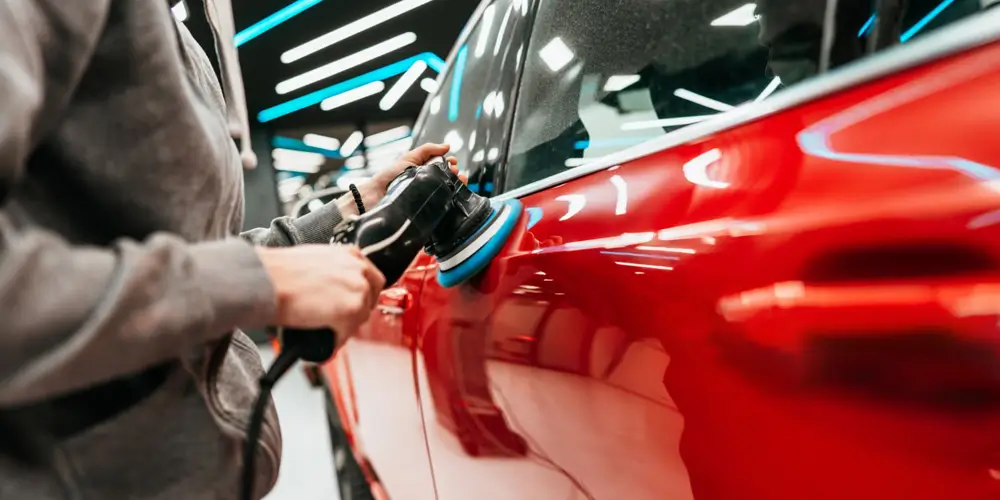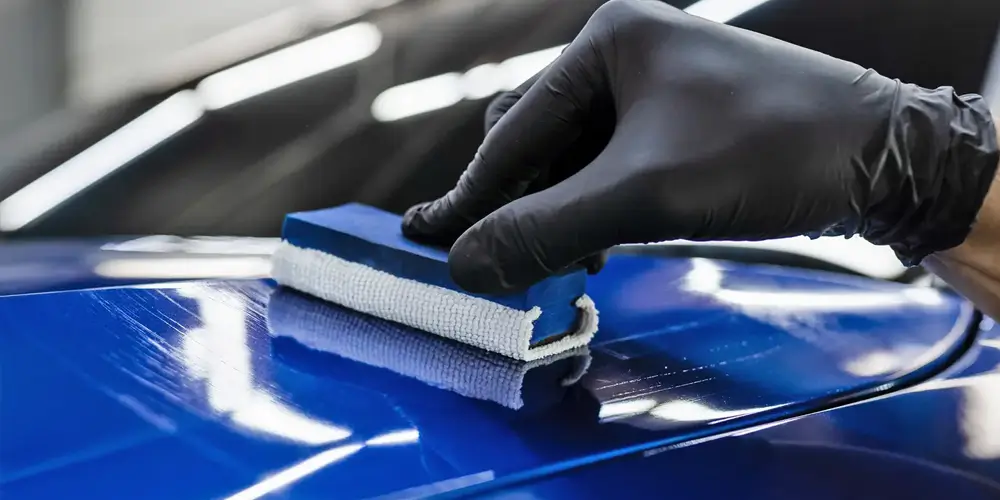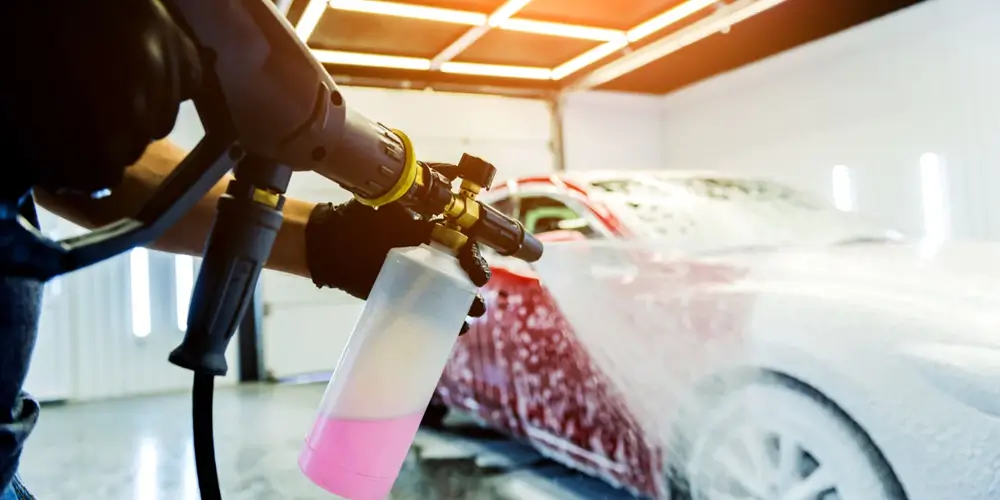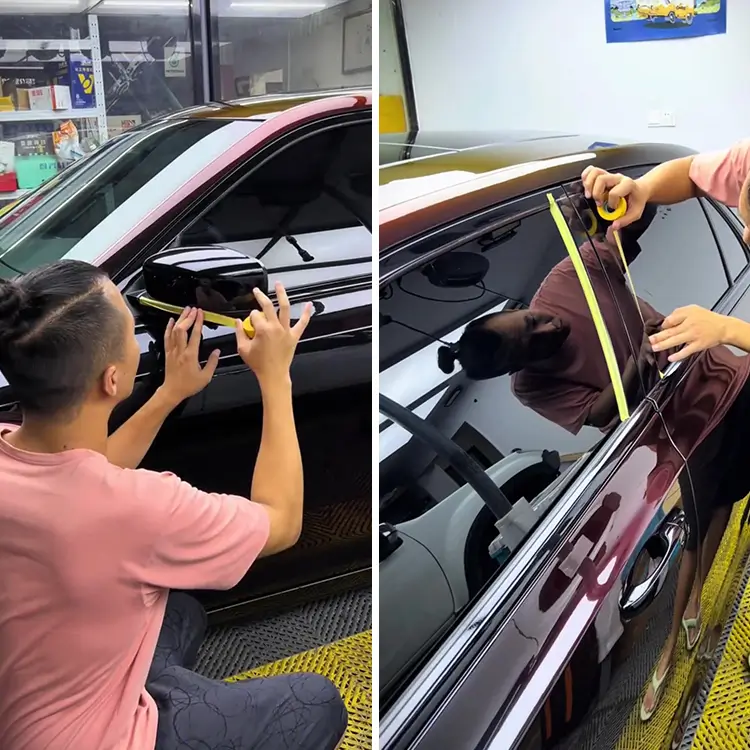Why Mask The Car With Tape Before Polishing
In the world of auto detailing, the difference between a good job and a great one often comes down to the details. One such detail is the use of masking tape before polishing a car. While it might seem like a minor step, it plays a crucial role in ensuring the best possible results without causing unintended damage. This article will explore the importance of masking the car with tape before polishing, detailing its benefits, the proper technique, and the impact it has on the overall detailing process.
The Purpose of Masking the Car
1. Protection of Delicate Areas
Polishing a car involves the use of abrasive compounds that remove a fine layer of clear coat or paint to smooth out imperfections and restore a glossy finish. However, not all areas of a vehicle's exterior are suited to endure the same level of abrasion. Masking tape is essential to protect delicate parts such as rubber seals, plastic trim, and emblems that could be damaged or discolored by the polishing process.
2. Prevention of Over-Polishing
Over-polishing occurs when too much material is removed from the car's surface, potentially leading to damage such as thinning the clear coat or even exposing the base coat. By masking off edges and sharp lines, you prevent the risk of over-polishing these areas, which are more susceptible to damage due to their contours.
3. Avoidance of Compound Residue
Polishing compounds, especially those used in more aggressive correction stages, can leave residue behind that can be difficult to remove from certain areas of the car. For instance, if polish gets into the crevices around headlights, badges, or window seals, it can harden and become a nuisance to clean out. Masking these areas ensures that the polish only goes where it’s needed, saving time and effort in the cleanup process.
The Benefits of Proper Masking
1. Enhanced Professionalism
Attention to detail is what sets professional auto detailers apart from amateurs. Proper masking before polishing demonstrates a high level of care and precision, reflecting positively on the quality of your work. Clients will notice the lack of polish residue on their trim and the overall pristine condition of their vehicle, which can lead to repeat business and positive word-of-mouth referrals.
2. Time and Cost Efficiency
While masking the car may seem like an additional step that takes time, it ultimately saves time in the long run. By preventing damage to sensitive areas and reducing the need for extensive cleanup, you can complete the polishing process more efficiently. Additionally, avoiding costly mistakes like over-polishing can save you from having to repair or repaint parts of the vehicle, leading to higher profitability.
3. Optimal Polishing Results
When you mask off areas that don’t need polishing, you can focus your efforts on the panels that do, ensuring a more even and consistent finish. This targeted approach allows for better control over the polishing process, resulting in a flawless, high-gloss finish that meets the highest standards of auto detailing.
The Masking Process: Step-by-Step
1. Gather the Right Materials
Before you begin the masking process, ensure you have the appropriate materials. High-quality automotive masking tape is crucial, as it is designed to stick well to the car's surface without leaving adhesive residue or damaging the paint when removed. You will also need plastic sheeting or paper to cover larger areas if necessary.
2. Clean the Surface
The surface of the car must be clean and dry before applying masking tape. Any dirt, dust, or moisture can prevent the tape from adhering properly, leading to potential issues during polishing. Use a clean microfiber cloth and a quick detailer or isopropyl alcohol to wipe down the areas where the tape will be applied.
3. Apply the Tape
Start by masking off the areas that you want to protect. Common areas to mask include:
- Rubber seals around windows and doors
- Plastic or chrome trim
- Emblems and badges
- Headlights and taillights
- Door handles
- Edges of panels where over-polishing could occur
Apply the tape carefully, ensuring it is pressed down firmly along the edges to prevent any polish from seeping underneath. Use multiple layers of tape if necessary, especially on areas that are particularly vulnerable.
4. Cover Larger Areas
If you are polishing a specific section of the car, consider using plastic sheeting or paper to cover adjacent panels or parts of the car that don’t need polishing. This extra layer of protection can prevent accidental contact with the polishing machine or compound.
5. Perform a Final Check
Before you start polishing, take a moment to inspect your work. Make sure all the areas that need protection are adequately masked and that the tape is securely in place. A quick final check can save you from potential mistakes during the polishing process.
Common Mistakes to Avoid
1. Using the Wrong Tape
Not all tapes are created equal. It’s important to use tape that is specifically designed for automotive use. Household tapes may not adhere properly to the car’s surface or could leave behind sticky residue that is difficult to remove. Automotive masking tape is engineered to perform under the conditions present during polishing and detailing.
2. Inadequate Masking
Rushing through the masking process or neglecting to mask certain areas can lead to problems later on. It’s better to take the time to mask thoroughly than to risk damaging parts of the vehicle. Pay special attention to tight crevices, edges, and areas around emblems or trim.
3. Removing the Tape Too Late
Once the polishing is complete, it’s important to remove the tape promptly. Leaving it on for too long can make it harder to remove and could result in adhesive residue being left behind. Removing the tape while the polish is still fresh allows for cleaner removal and ensures that no residue is left behind.
The Impact of Proper Masking on the Detailing Business
1. Customer Satisfaction
For import wholesalers, auto detailing shop owners, and auto repair center owners, customer satisfaction is paramount. When clients see that their vehicle has been meticulously detailed with no damage to sensitive areas, they are more likely to be pleased with the service. This satisfaction translates into repeat business and positive reviews, both of which are crucial for business growth.
2. Professional Reputation
Your reputation as an auto detailing professional is built on the quality of your work. By incorporating masking into your polishing process, you demonstrate a commitment to excellence and attention to detail. This professionalism not only attracts new clients but also helps to establish long-term relationships with existing ones.
3. Cost Management
Avoiding costly mistakes, such as over-polishing or damaging trim, helps to manage your costs more effectively. Proper masking reduces the likelihood of needing to repair or replace parts, which can eat into your profits. By protecting the car’s various components, you ensure that your detailing services remain profitable and sustainable.
4. Streamlined Workflow
Integrating masking into your polishing process may seem like an extra step, but it actually contributes to a more streamlined workflow. With fewer interruptions for cleanup or repairs, you can complete each job more quickly and efficiently, allowing you to take on more clients and increase your overall revenue.
Conclusion: Masking as a Cornerstone of Quality Auto Detailing
In the highly competitive world of auto detailing, the difference between good and great often comes down to the smallest details. Masking the car with tape before polishing is one such detail that can have a significant impact on the quality of your work. By protecting delicate areas, preventing over-polishing, and ensuring a clean finish, masking tape plays an essential role in the polishing process.
For import wholesalers, auto detailing shop owners, and auto repair center owners, the benefits of proper masking extend beyond just the immediate results. It enhances customer satisfaction, builds a professional reputation, manages costs, and streamlines your workflow. By incorporating masking into your polishing routine, you set yourself up for success in the auto detailing industry.
If you’re ready to take your auto detailing services to the next level, consider collaborating with SYBON. Our range of high-quality products, including automotive masking tape and polishing compounds, is designed to help you achieve the best possible results. Contact us through our website form, and our sales team will get in touch with you within 24 hours to discuss how we can work together to enhance your detailing business.
Source of this article:https://www.sybonbest.com
Get to know us through more channels:




